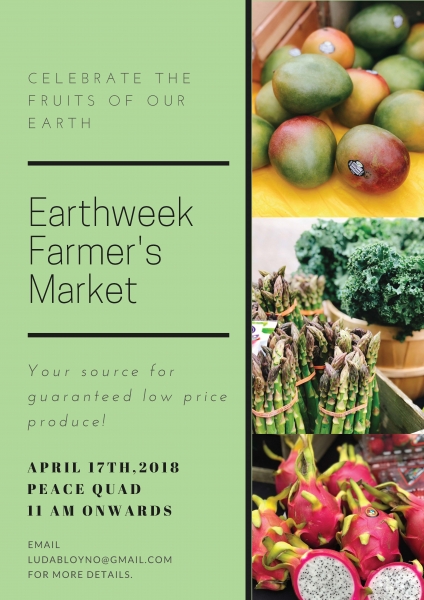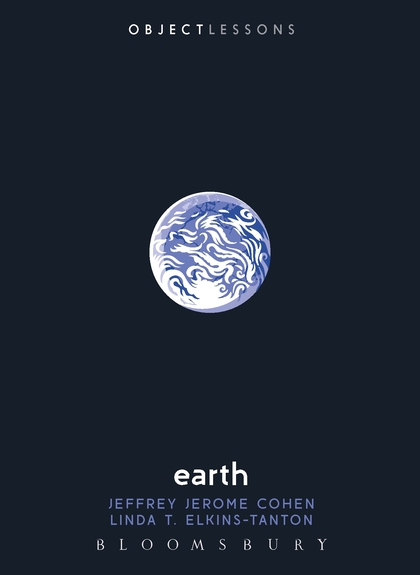Earth Week 2018 April 16th – 20th Hosted by Loyola University New Orleans’ Environment Program, Earth Week 2018 will teach community members to celebrate the environment, as well as how to protect and sustain it. Most events are free and open to the public. Free parking in the West Road garage for all Earth Week events.
Monday (4/16)
The Greenhouse Gathering
Greenhouse, Monroe Rooftop 5-9 pm
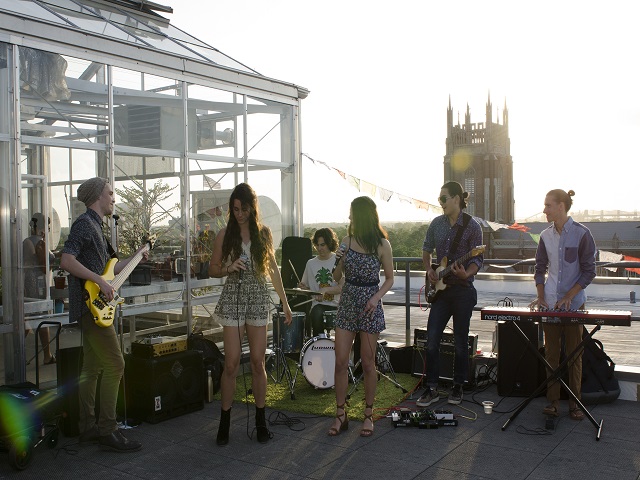
- The Azby rooftop greenhouse facility along with the physics department observation deck will be the spot to be for an evening of exciting science exploration and campus vistas. The greenhouse rooms will be open for perusing the permanent collection of plants; from Arabica coffee shrubs to Venus fly traps, physics students and faculty will demonstrate the power of electricity and show you what's up...in the sky! There will also be live music from Loyola music students and food from La Monita.
Tuesday (4/17)
Sodexo Farmers Market
Peace Quad 11-2 pm
- Check out all the delicious fresh fruits and vegetables for sale at the Farmers Market. There will be fun games, prizes, and more.
Boulder Lounge Rockwall Climbing
New Orleans Boulder Lounge – 1746 Tchoupitoulas Street 5-9 pm
$10 Admission all day for Loyola student’s w/I.D.
Proceeds going to the Access Fund – A nonprofit dedicated to protecting public parks and climbing ranges.
Shuttle from Loyola begin at 5 pm. RSVP Online! @earthweekloyno
- Enjoy Bouldering:What is bouldering?
Bouldering is climbing at lower heights without a rope or harness. Our walls at NOBL range from
12 feet – 14 feet with 12”-14” padded foam flooring beneath. Make sure to wear something comfortable that allows full range of motion. Please bring a water bottle so you can use the water machine without creating any waste!
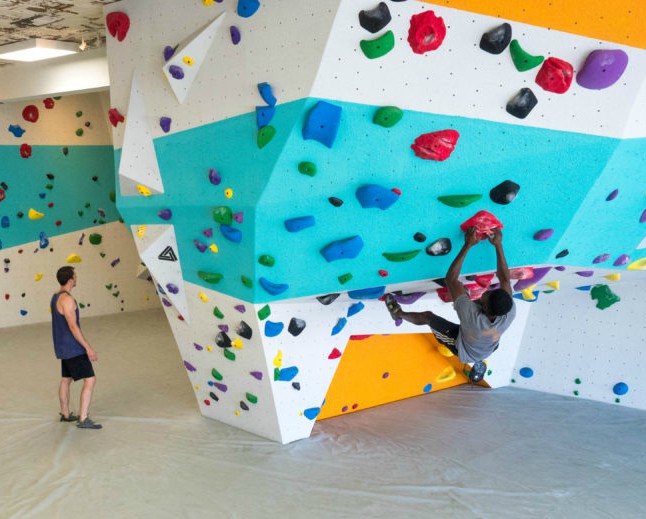
Wednesday (4/18)
Multi-Faith Earth Celebrations & Meditations
Peace Quad & Monroe Lawn 10 am-2 pm
Cosmic Walk
Guided ritual on our human place in the universe with Sister Alison McCrary.
(Arrive 5 minutes before start time.)
10 AM; 11 AM & 1:30 PM
4th Floor Gallery Space, Monroe Library
-
The Cosmic Walk: a guided walking meditation on our place in the universe, led by Sister Alison McCrary.
The Cosmic Walk is a ritual of bringing our knowledge of the 14-billion-year Universe process of evolution and creation unfolding from our heads to our hearts. The purpose of the Cosmic Walk Ritual is to awaken a deeper consciousness in the human of the amazing beauty and age of the unfolding life process of the Universe and to evoke a sense of mystery, awe, and reverence in the person who participates in this ritual. The spiral on the ground will take us on the 14 billion year cosmic and evolutionary journey with each instance of emergence in time marked at a proportionate distance along the length of the spiral. We will begin at the very center of the spiral, the Flaring Forth of the Universe itself and allow the Sacred Story to unfold before us through story, song, reflection, symbols, movement, and candles. If you would like to serve as the "walker" of the spiral or a reader, please arrive at least 10 minutes before the start of the ritual to receive instructions. After the ritual, time will be allocated for facilitated small group, large group, and private reflection and processing of the sacred universe story, how it impacts our lives and shapes our worldview, and what commitments we want to make as a result.
Bio for Sister Alison McCrary:
-
Sister Alison McCrary, SFCC is a Catholic nun, public speaker, social justice attorney, Executive Director of the National Police Accountability Project, and a Spiritual Advisor on Louisiana’s death row. She works on issues related to criminal justice reform, immigrant rights, international human rights, cultural preservation, voting rights, disaster recovery, housing rights, and provides support to various social justice movements and organizations locally, nationally, and internationally. She formerly served as the Program Director for the Community-Police Mediation at the New Orleans Office of the Independent Police Monitor creating a national model for improving community-police relationships and helped develop similar programs in cities around the country. As a 2010 Soros Justice Advocacy Fellowship in New Orleans, she challenged and changed policing practices and policies to transform relationships between police officers and the bearers of New Orleans’ indigenous cultural traditions. Prior to law school, she worked at the Capital Post-Conviction Project of Louisiana providing litigation support on death penalty cases and at the United Nations in New York monitoring the implementation of U.N. Security Council Resolutions. In 2009, she was an Ella Baker Fellow at the Center for Constitutional Rights. Nationally, Alison coordinates and provides legal support for social justice movements such as the School of the Americas Watch and Black Lives Matter. Internationally, she has worked on racial, educational, and economic justice issues in the favelas (slums) of Brazil and on human rights issues in Nigeria, Vietnam, and Uganda among other countries. She received her J.D. from Loyola University’s College of Law in New Orleans and her B.A. in English at Georgia State University in Atlanta. She also completed coursework at Johannes Gutenburg Universität in Mainz, Germany, University of Surrey in London, Universidade do Estado do Rio de Janeiro in Brazil, Loyola University Chicago, and Catholic Theological Union.
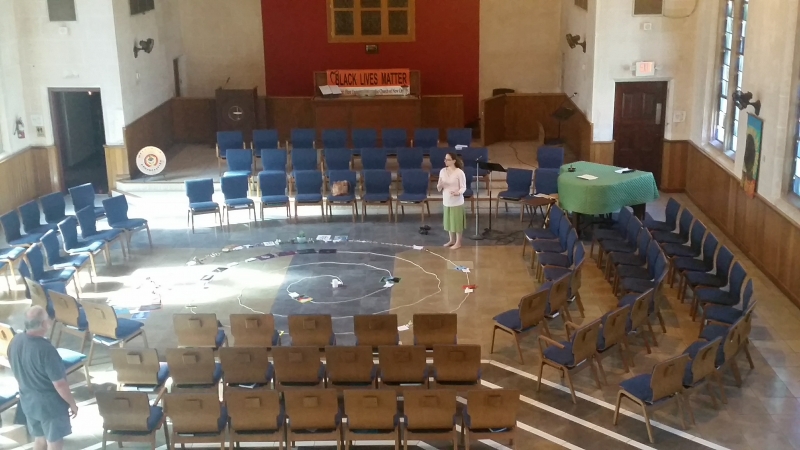
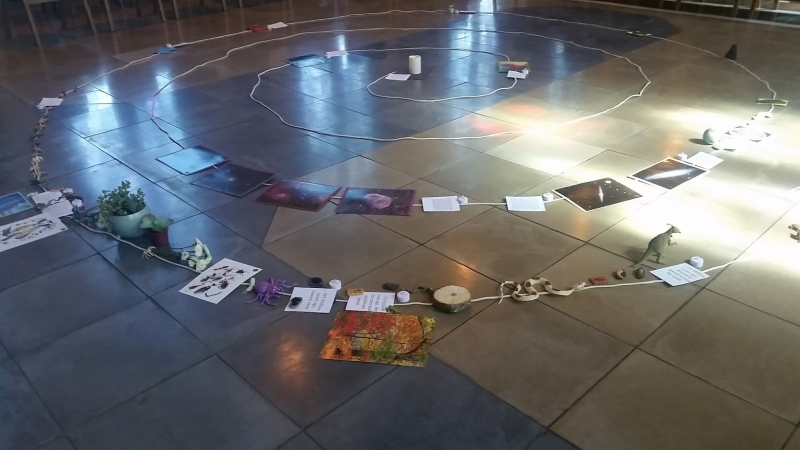
Earth Meditations Ceremony
12:30 – 1:15 PM
Peace Quad
Followed by food and fellowship.
Labyrinth
11:45 AM – 2 PM
Monroe Lawn
Self-guided labyrinth meditation.
- Labyrinth walking: LABYRINTH HISTORY
The labyrinth is an ancient human symbol known to go back as least 3500 years. It is a form of reflection and prayer that has been rediscovered in recent years. A labyrinth is not a maze, but a walking meditation device with a single winding path from the edge to the center. The same path is used to return to the outside.
Combining a number of even older symbols, including the circle, spiral and meander, the labyrinth represents the journey inward to our own true selves and back out into the everyday world.
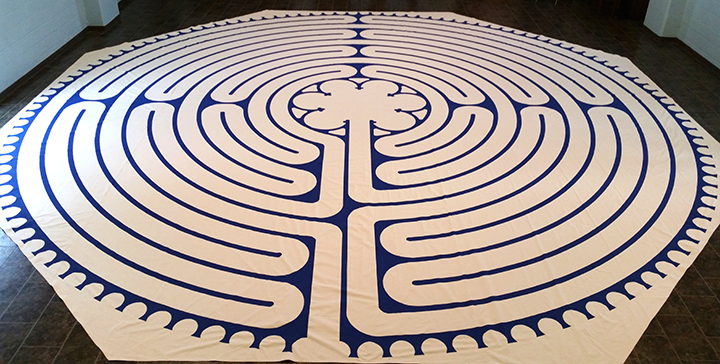
Nature by Design
Critique Exhibition Space, Monroe 411 5:30-7:30 pm
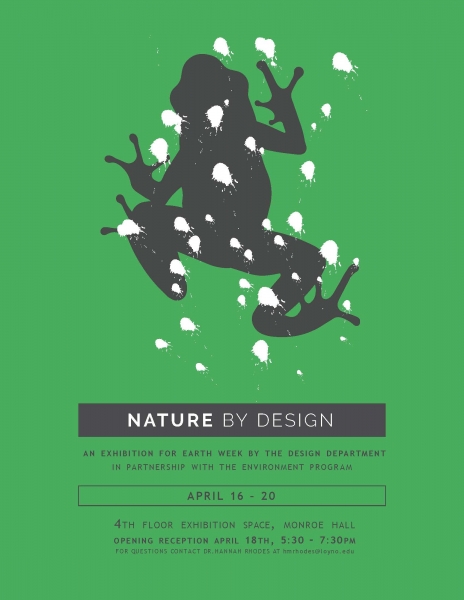
-
Loyola’s Design Department are proud to be collaborating with the Environment Program for this year’s Earth Week 2018. From the 16th until the 20th of April, environmental-themed exhibition Nature By Design will be displayed on the Fourth Floor of Monroe Hall, with an Opening Reception on Wednesday the 18th from 5:30 until 7:30pm.
The exhibition features students from across the University and promises to showcase a broad range of dynamic and contemporary artwork celebrating the Natural World and our place within it.
Mirabeau Water Garden talk by Dr. Bob Thomas
Whitney Room, Thomas Hall 7-8:30 pm
- New Orleans is recalibrating its water management strategies. Stimulated by a thoughtful reevaluation by architect David Waggonner of the roles water may play in local resilience, emphasis is shifting from removing water from the city to retaining water and adjusting to its heretofore unseen benefits. Discussion will enumerate new pathways to better living with water as a friend and not an enemy. Robert Thomas is Professor of Mass Communication at Loyola and holds the Distinguished Scholar Chair in Environmental Communications. He was Founding Director of the Louisiana Nature Center. He is recipient of numerous awards for his work in conservation and environmental education.
Thursday (4/19)
Arts & Crafts Featuring Bagel Boy
Peace Quad 12-2 pm
- Come decorate your very own flower pot. There will be plants for sale from our greenhouse to put in your new designer flower pot.
- Also Bagel Boy will be handing out his very own Earth Day bagel. They are delicious, so come early and try one while supplies last.
Friday (4/20)
Earth: How Do We Know What We Know About Our Planet
Join Dr. Jeffrey Cohen & Dr. Lindy Elkins-Tanton
Nunemaker Auditorium 7-9 pm, Book signing from 8:30 - 9 pm
- On Friday April 20 at 7 pm, please join Jeffrey Jerome Cohen and Lindy Elkins-Tanton in a discussion of their book Earth, along with several Environmental Studies majors at Loyola. The authors—one a humanist, the other a scientist—will discuss matters of ecology, scale, perspective, disaster, space exploration, and the future of our planet.
Bios for Drs. Lindy Elkins-Tanton & Jeffrey Cohen:
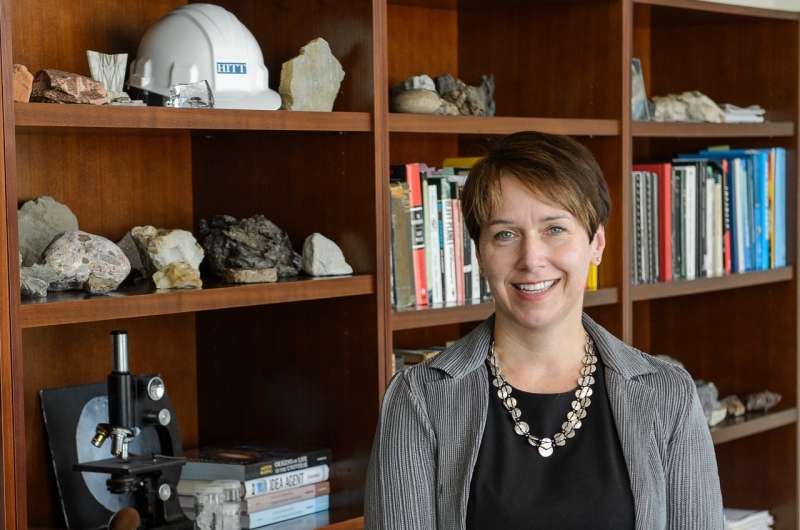
- Lindy Elkins-Tanton is the director of the School of Earth and Space Exploration at Arizona State University, co-chair of the Interplanetary Initiative, and she is the Principal Investigator (PI) of the Psyche mission, selected in 2017 as the 14th in NASA’s Discovery program. Her research includes theory, observation, and experiments concerning terrestrial planetary formation, magma oceans, and subsequent planetary evolution including magmatism and interactions between rocky planets and their atmospheres. She also promotes and participates in education initiatives, in particular, inquiry and exploration teaching methodologies, and leadership and team-building for scientists and engineers. She has lead four field expeditions in Siberia, as well as participated in fieldwork in the Sierra Nevada, the Cascades, Iceland, and the Faroe Islands. Among her numerous publications, Elkins-Tanton is the author of a six-book reference guide called The Solar System.
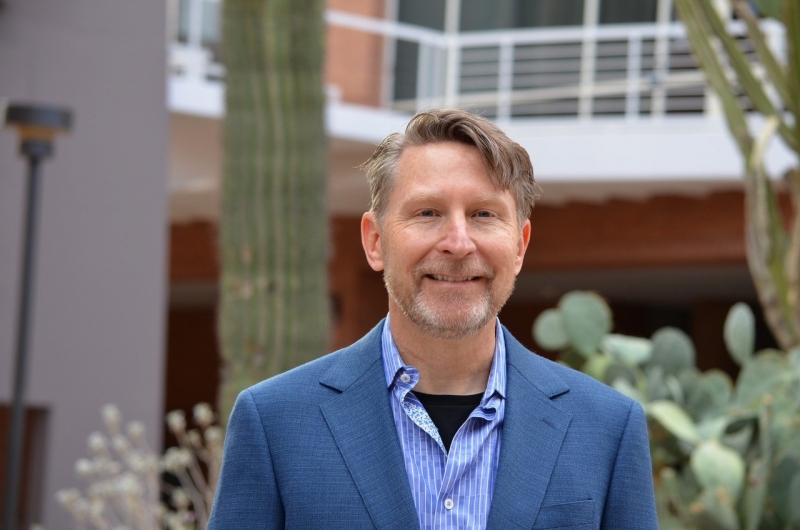
- Jeffrey Jerome Cohen's research examines phenomena that are paradoxically alien and intimate. His publications examine multilingual literatures of the British archipelago and how they contest an easy narrative of the triumph of English; how queer theory, critical race studies and post humanism might help us to better understand the texts and cultures of the Middle Ages, and how our contemporary moment might be transformed by that encounter; the complexities of time and history when thought outside of easy progress narratives; and the complicated liveliness of what is supposed to be inanimate. Much of his current work brings to fruition a longtime engagement with the environmental humanities and ecological theory. He is the author or editor of fifteen books, including his recent Stone: An Ecology of the Inhuman, and the seminal work Monster Theory: Reading Culture.


